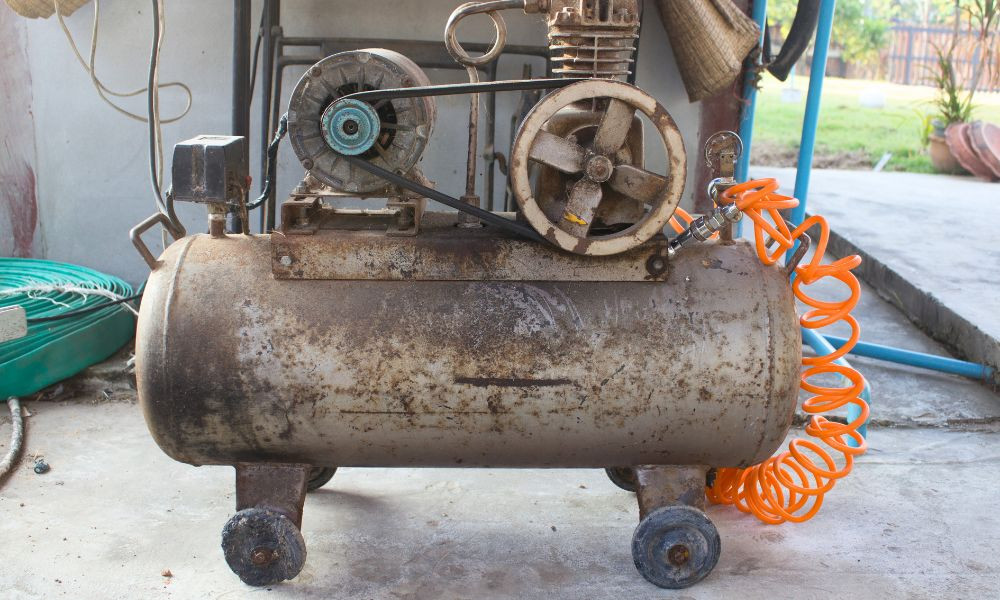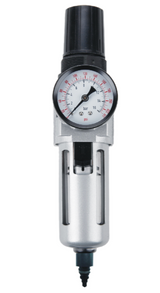Common Problems With Aging Air Compressors
Air compressors are a vital tool in many industrial, automotive, and DIY applications. They provide the power necessary to run various tools and machinery, making them an indispensable part of your toolkit.
However, with time and use, air compressors can develop certain issues that might hinder their performance. Learn common problems with aging air compressors that you might encounter and some solutions to these potential challenges.
Leaks and Rust
Air leaks are a frequent issue with older air compressors. Over time, seals, and gaskets that help maintain the pressure within the system may wear out, leading to air leaks. These leaks can significantly diminish the efficiency of your compressor, compelling it to work harder to sustain the required pressure.
Rust is another problem that often plagues aging air compressors. The internal condensation can lead to corrosion over time. If not addressed promptly, this rust can cause substantial damage to the compressor's internal components, resulting in costly repairs or even a complete system failure. Regularly draining the condensation from your air compressor, coupled with other standard maintenance, can help identify these problems early on and prevent further damage.
Won't Cut In or Cut Out
Another common issue with aging air compressors is their inability to start (cut in) or stop (cut out) at the correct times (or pressures). This problem often stems from issues with the pressure switch, which responds to changes in pressure by starting or stopping the air compressor’s motor. The motor will then either stop adding pressure to the tank or build pressure back up again. If the pressure switch becomes worn or damaged, it may not register the correct pressure levels, causing the compressor to behave erratically. It’s common for the switch’s copper contacts to become corroded, and oftentimes this can be repaired by simply cleaning these contacts.
Fortunately, replacing a faulty pressure switch is possible. Master Tool Repair carries Campbell air compressor parts, including pressure switches, that can help you perform necessary repairs on your air compressor, plus parts for many other well-known brands of air compressors.
Unusual Noises
Unusual noises can indicate a problem with an air compressor. Aging units may begin to make knocking, rattling, or humming sounds, which could signify various issues. For instance, a knocking sound could suggest a problem with the valves or connecting rods, while a rattling noise might be due to loose parts (such as a loose or bent flywheel). It could be that the drive belt is too tight or too loose, causing the bearings in the motor and/or pump to wear out prematurely. Any unusual noises should prompt an immediate inspection to identify and rectify the problem.
Won't Hold Pressure
If your air compressor struggles to maintain the correct pressure, it could be due to wear and tear on its various components. Worn gaskets / seals, damaged valves, a faulty pressure switch, or a pinhole leak in the air tank (usually where the drain cock is located) can all contribute to this problem. In some cases, the issue may lie with the compressor's pump. Oftentimes, it’s caused by a faulty in-tank check valve that doesn’t seal. A professional can diagnose the problem and recommend the most effective solution.
Aging air compressors can develop leaks and rust, difficulties with cutting in and out, unusual noises, and trouble maintaining pressure. Regular maintenance and prompt attention to any issues can help extend the life of your compressor and keep it running efficiently. If you notice any of these common problems, consult the experts at Master Tool Repair for some insight and possible solutions.
Recent Posts
-
Why Dry Air is Non-Negotiable for Your Operations
In many industrial and commercial settings, compressed air is the lifeblood of operations. It powers …Jul 8, 2025 -
The Sound of Trouble: Diagnosing Strange Noises in Your Air Compressor
Your air compressor is a workhorse, a reliable partner for countless tasks. But what happens when th …Jul 2, 2025 -
Mastering Your Compressor: How to Set the Perfect Pressure for Any Job
One of the most frequent questions we hear at Master Tool Repair is: "What pressure should my air co …Jun 6, 2025




